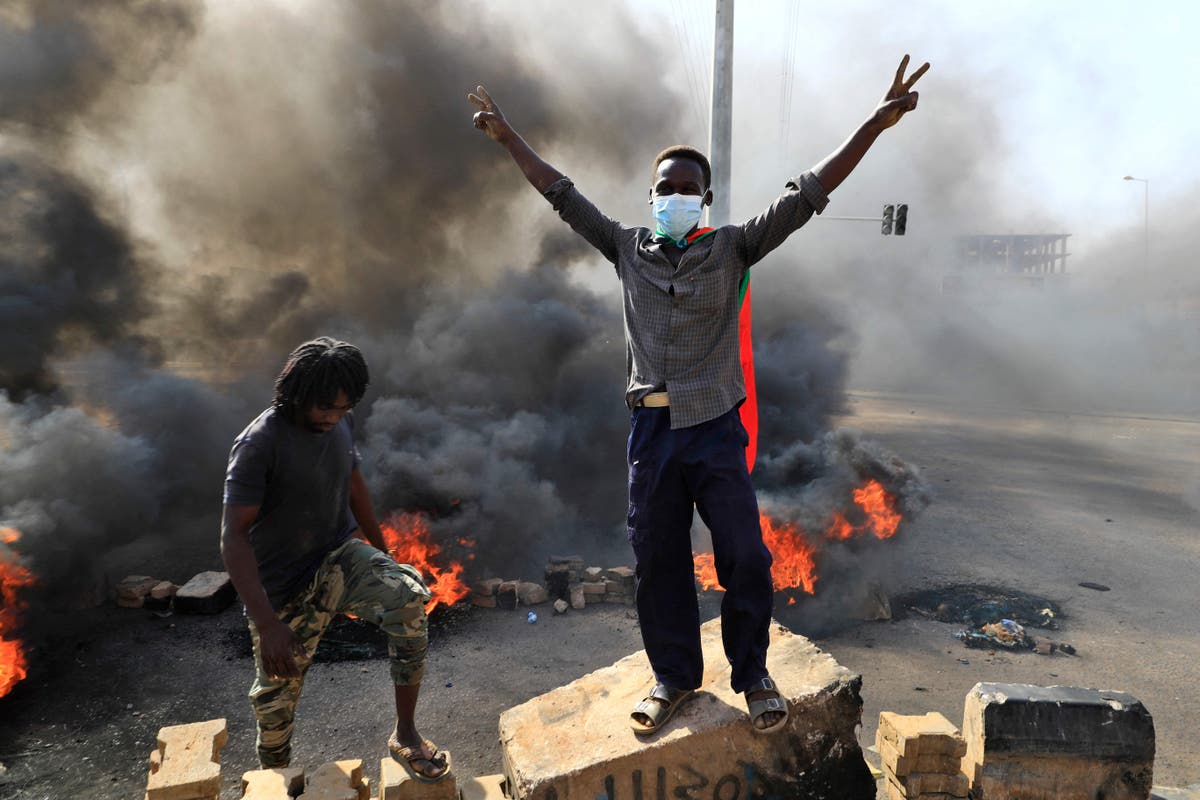The government in Sudan has been toppled by a military coup. The army has dissolved the country’s civilian rule, arrested political leaders and declared a state of emergency. The coup has been greeted on the streets of Khartoum, the capital, with demonstrations in protest against the arrests.
The coup leader, Gen Abdel Fattah Burhan, has blamed political infighting as military leaders almost always do. Three people are said to have died after being shot by the armed forces. Military and civilian leaders have been at odds ever since long-time ruler Omar al Bashir was overthrown two years ago. Large numbers of protesters are on the streets of the capital demanding the return of civilian rule. More protesters are expected to join the crowds after calls for action by political parties and professional unions. Doctors have refused to work at hospitals and institutions under military rule, except in emergencies.
Advertisement
“We will not leave the streets until the civilian government is back and the transition is back,” said one demonstrator. “We are ready to give our lives for the democratic transition in Sudan,” another protester was quoted as saying. Army and paramilitary troops have been deployed across Khartoum, the city’s airport is closed and international flights are suspended. The internet is also down. At least three people have been killed and 80 injured, the Sudan Central Doctor’s Committee wrote on its Facebook page. Those who died had been shot by soldiers, it said.
Video footage from Khartoum on Monday showed large groups in the streets, including many women. Barricades of burning tyres could be seen, with plumes of black smoke rising in various parts of the city. “There is tension and also violence because people tried to go to the army headquarters… they were met with gunshots”, human rights defender Duaa Tariq told the BBC. She added there was fear and confusion in the streets, but also solidarity between the protesters.
Truth to tell, the country is up in arms against the usurper regime. World leaders have reacted with alarm to the military’s move. A fractured coup attempt in September had split the country along traditional lines. Conservative Islamists want a military government. In recent days, both camps have taken to the street in the demonstration. Sudan appears to be split between those who seek a new regime and those who have been protesting against the military offensive.
Burhan, who heads the council, had said last month that the military would hand over power to a government elected by the people of Sudan, with elections planned in 2023. But clearly, a restive population is not convinced. The country has suffered a series of coups ever since it gained independence from Britain and Egypt in 1956. Al-Bashir had assumed power in 1989 in one such takeover











